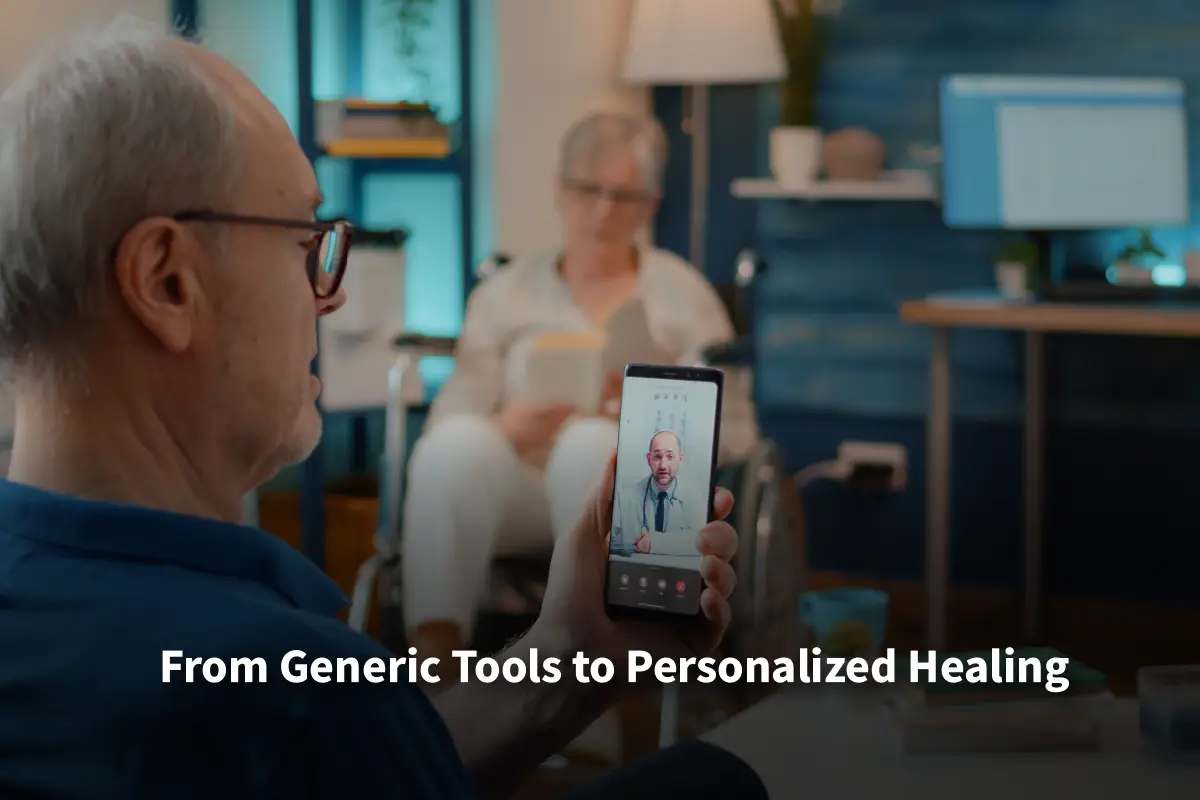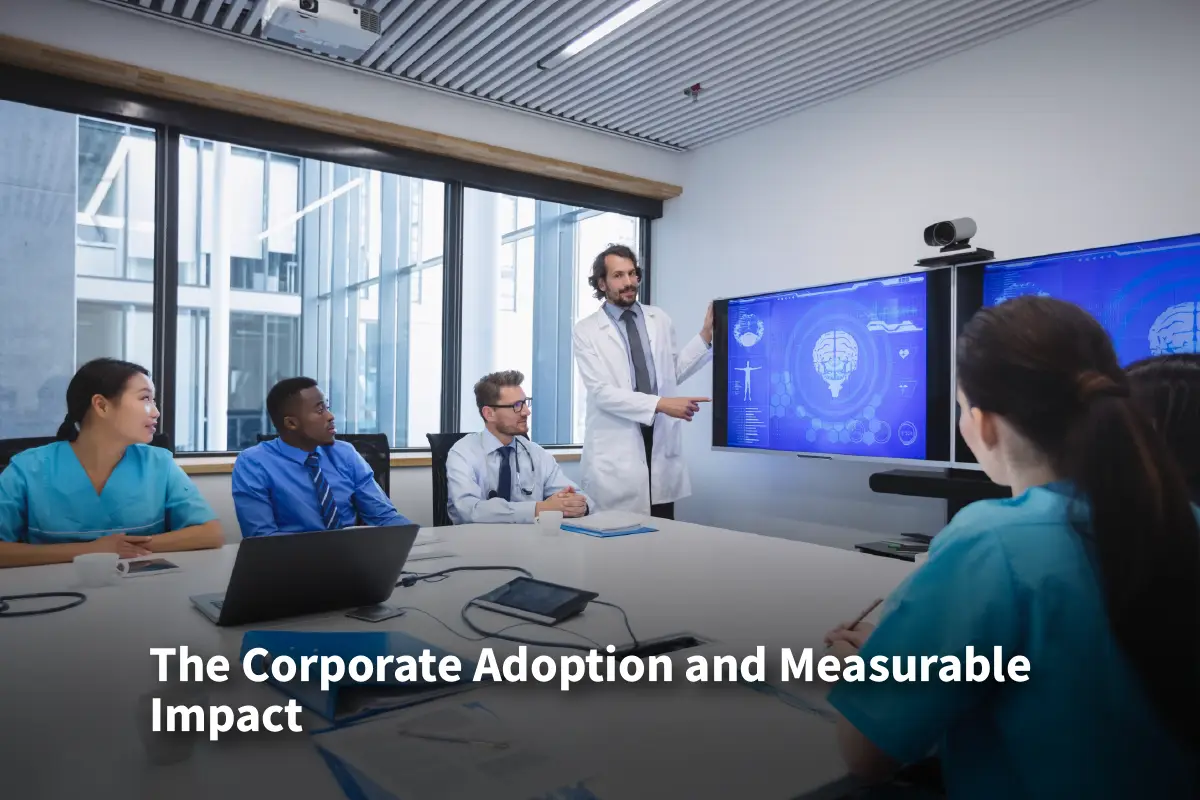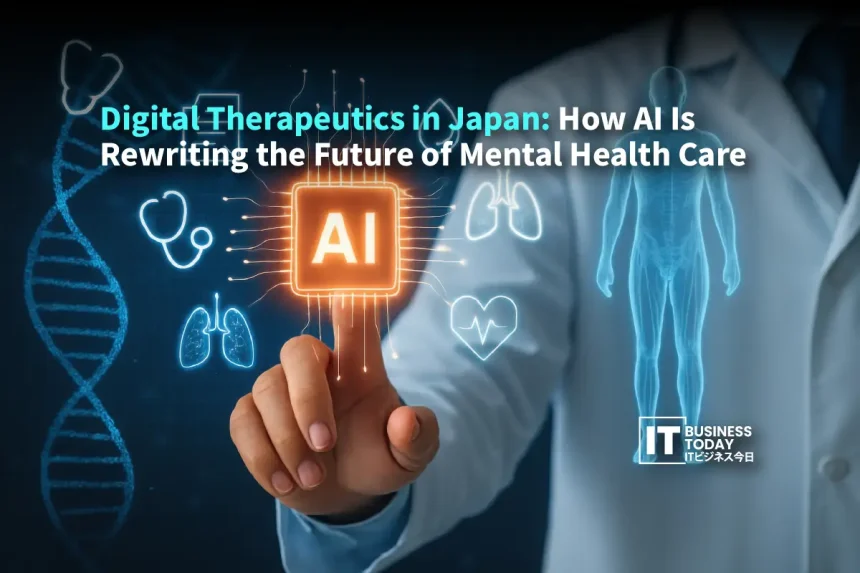何年もの間、日本の企業界は静かにこう語ってきました。 メンタル 健康スティグマと誤解によって、この話題はしばしば陰に隠れてしまいます。この沈黙がもたらす経済的コストは莫大です。生産性の低下、欠勤、そして一般的な離職につながります。技術革命がメンタルヘルスケアを変えようとしています。それは、古い障壁を取り払い、パーソナライズされたソリューションの新時代をもたらします。日本では、デジタル・セラピューティクス(DTx)が急成長しています。この急成長の背景には、社会的ニーズと先進的なAI技術があります。これは流行のウェルネス・アプリや瞑想ポッドキャストのことではありません。臨床的に検証されたソフトウェア・ソリューションの話です。これらのツールは、うつ病や不安神経症、慢性的なストレスの診断や治療方法を変えようとしています。先見の明のあるビジネスリーダーにとって、これは単なるヘルスケアのトレンドではありません。重要な戦略なのです。組織の回復力を高め、優秀な人材を確保し、利益を上げるのです。
社会的ニーズと技術力の融合
日本の特殊な社会・経済環境は、デジタル・セラピューティクスに最適です。労働文化の圧力、高齢化、メンタルヘルス専門家の不足が危機を引き起こしています。このような状況には、拡張性のあるソリューションが必要です。従来の治療法は効果的ですが、大きな課題に直面しています。高額な費用、限られたアクセス、社会的烙印により、多くの人々がクリニックに足を運ぶことができません。
デジタル治療法の登場です。これは、医療障害を予防、管理、治療するために、ソフトウェアを通じて提供される実績のある治療法です。臨床医を強力にサポートするものであり、代替物ではありません。匿名性があり、簡単にアクセスできます。これは、ケアへの最大の障壁である「会話の開始」を取り除くのに役立ちます。従業員は自宅や外出先、休憩時間などにDTxプラットフォームを利用することができます。また、批判される心配もありません。デジタルヘルスプロバイダーによると、従業員の60%近くが精神的健康状態に苦しんでいると推定されている日本では、これは非常に重要なことです。 知性.
こちらもお読みください: AIパイプラインの安全性:世界がMLインフラを強化する方法
日本政府は厚生労働省を通じて、この可能性をいち早く認識しました。2025年4月現在 ファイブ DTx製品が正式に承認され、2つの製品が国民健康保険の対象となりました。その さきがけ 新しい治療法の承認を迅速化するDTx指定は、DTx製品も対象となりました。これにより、承認までの期間が数ヶ月短縮され、償還の優遇措置も提供されることになり、デジタル医療に対するオープンな姿勢が明確になりました。 健康 イノベーション
汎用ツールからパーソナライズされたヒーリングへ

AIは、これらのデジタル・プラットフォームの真の変化を促します。初期のデジタルヘルスツールは、ほとんどが静的なものでした。それらは、認知行動療法(CBT)のエクササイズを含む、技法の画一的なライブラリを提供していました。今日のAI主導のDTxは、生き生きとして適応性があり、高度にパーソナライズされています。
単にレッスンを提供するだけでなく、ユーザーから学ぶプラットフォームを想像してみてください。スマートなアルゴリズムは、ユーザーの対話の仕方、気分のログ、ウェアラブルからのデータを調べます。睡眠の質や活動レベルのパターンも調べます。これにより、AIは抑うつエピソードや不安の高まりの早期警告サインを見つけることができます。本人が気づく前に、このようなことができるのです。システムは目標とするエクササイズを提案することができます。これは5分間の呼吸法であったり、思考エクササイズであったり、ガイド付き瞑想であったりします。それぞれの提案は、その人のその時のニーズに合わせて調整されます。
これは、最も効果的な形での予知・予防ケアです。ビジネスリーダーにとって、これは重要なチームメンバーのために早めに手を差し伸べることを意味します。小さな問題が長期離脱を必要とする大きな危機に発展するのを食い止めることができます。そして、最も貴重な資産である人的資本を、事後的なサポートから事前的なケアへとシフトさせるのです。
NLPは、テキストチャットを使ってセラピーのような会話をプラットフォームが模倣することを可能にします。訓練されたセラピストは素晴らしい共感力を持っています。しかしチャットボットは、人々が感情を共有するための重要な方法を提供します。昼夜を問わず、いつでも素早く、根拠に基づいた対処法を提供してくれます。この24時間365日のサポートシステムは不可欠です。過重労働が一般的な文化では、ストレスは9時から5時までのスケジュールに従うものではありません。
企業への導入と測定可能なインパクト

DTxは本当に有望で、現在企業でテストされています。一流銀行から有名メーカーに至るまで、日本の大手企業は従業員支援プログラム(EAP)にこのソリューションを加え始めています。 知性 によると、日本の企業の導入率は現在20~40%で、デジタル・ファースト・ケアに対する強い意欲を反映しています。その根拠は明確で説得力があります。
投資対効果は医療費の削減だけではありません。また、事業の業績に関する詳細な指標も含まれます。企業は、プレゼンティズム(現在主義)において明らかな利益を得ています。これは、従業員がデスクワークをしているにもかかわらず、精神的な活動をしていない状態のことです。メンタルヘルスがサポートされれば、集中力は向上します。創造性や協調性も向上します。競争の激しい人材市場において、現代的で控えめなメンタルヘルス・ベネフィットを持つ企業は際立ちます。それは、従業員の健康全般に対する企業の真のコミットメントを示すものです。これは、かけがえのない信頼と忠誠の文化を築きます。
新たなフロンティアの開拓
この新しいテクノロジーを採用するには、ソフトウェアのライセンスを購入するだけでは不十分です。思慮深い戦略と共感的なリーダーシップが必要なのです。スティグマの遺産は、弱まりつつあるとはいえ、一夜にして消えたわけではありません。ツールを与えるだけでは十分ではありません。その使用を支援し、弱さを示唆しない文化の一部である必要があります。
リーダーシップは、このような取り組みをトップダウンで支持する必要があります。メンタルフィットネスについてオープンに議論し、自ら実践するリーダーは、組織内の全員が自分のウェルビーイングに集中できるようにします。管理職のトレーニングは不可欠です。管理職は苦闘の兆候を察知する必要があります。管理職は、チームをこうしたリソースに導くべきです。そうすることで、前向きで協力的な選択肢が生まれます。
データのプライバシーとセキュリティは、機密性の高い医療情報を扱う上で極めて重要です。DTxプロバイダーとの提携は不可欠です。DTxプロバイダーは、データの暗号化と匿名化に関する厳格なグローバルルールに従わなければなりません。これにより、従業員とプラットフォームとの会話は プライベートその人たちとデジタル介護者のためだけに。
前途
AI搭載 デジタル 治療薬が日本の医療とビジネスの分野に影響を与え始めています。このトレンドの方向性は明確です。私たちは、メンタルヘルスのサポートが迅速で、オーダーメイドで、日常生活に簡単に溶け込む未来に向かっています。このシフトを受け入れる企業は、単に利益を提供するだけではありません。重要な競争優位性を築くことになるでしょう。
強さ、優しさ、創造性で知られるグループです。従業員が大切にされ、支えられ、ベストを尽くす意欲をかき立てられる場所です。テクノロジーはメンタルヘルスケアを変えます。まさにゲームチェンジャーです。現代のリーダーにとって重要な投資です。この変化は会社の成功に役立ち、社員の幸福を向上させます。仕事の未来は健全であり、今まさに到来しているのです。








